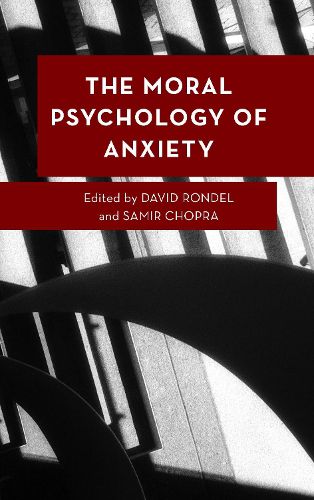Readings Newsletter
Become a Readings Member to make your shopping experience even easier.
Sign in or sign up for free!
You’re not far away from qualifying for FREE standard shipping within Australia
You’ve qualified for FREE standard shipping within Australia
The cart is loading…






Edited by David Rondel and Samir Chopra, The Moral Psychology of Anxiety presents new work on the causes, consequences, and value of anxiety. Straddling philosophy, psychology, clinical medicine, history, and other disciplines, the chapters in this volume explore anxiety from an impressively wide range of perspectives. The first part is more historical, exploring the meaning of anxiety in different philosophical traditions and historical periods, including ancient Chinese Confucianism, twentieth-century European existentialism, and the Roman Stoics. The second part focuses on a cluster of questions having to do with anxiety's nature and significance: Is anxiety something biological or cultural, or perhaps both? What is at the root of anxiety? Why should human beings suffer in this way? What is the experience of anxiety like, and what, if anything, are the benefits associated with it? Does anxiety have the potential to make us more virtuous or improve the quality of our inquiry? Addressing an area where newer work in moral psychology is sorely needed, this collection and the varied perspectives it offers will be of great interest to scholars, professionals, and students across philosophy, psychology, and related fields.
$9.00 standard shipping within Australia
FREE standard shipping within Australia for orders over $100.00
Express & International shipping calculated at checkout
Edited by David Rondel and Samir Chopra, The Moral Psychology of Anxiety presents new work on the causes, consequences, and value of anxiety. Straddling philosophy, psychology, clinical medicine, history, and other disciplines, the chapters in this volume explore anxiety from an impressively wide range of perspectives. The first part is more historical, exploring the meaning of anxiety in different philosophical traditions and historical periods, including ancient Chinese Confucianism, twentieth-century European existentialism, and the Roman Stoics. The second part focuses on a cluster of questions having to do with anxiety's nature and significance: Is anxiety something biological or cultural, or perhaps both? What is at the root of anxiety? Why should human beings suffer in this way? What is the experience of anxiety like, and what, if anything, are the benefits associated with it? Does anxiety have the potential to make us more virtuous or improve the quality of our inquiry? Addressing an area where newer work in moral psychology is sorely needed, this collection and the varied perspectives it offers will be of great interest to scholars, professionals, and students across philosophy, psychology, and related fields.